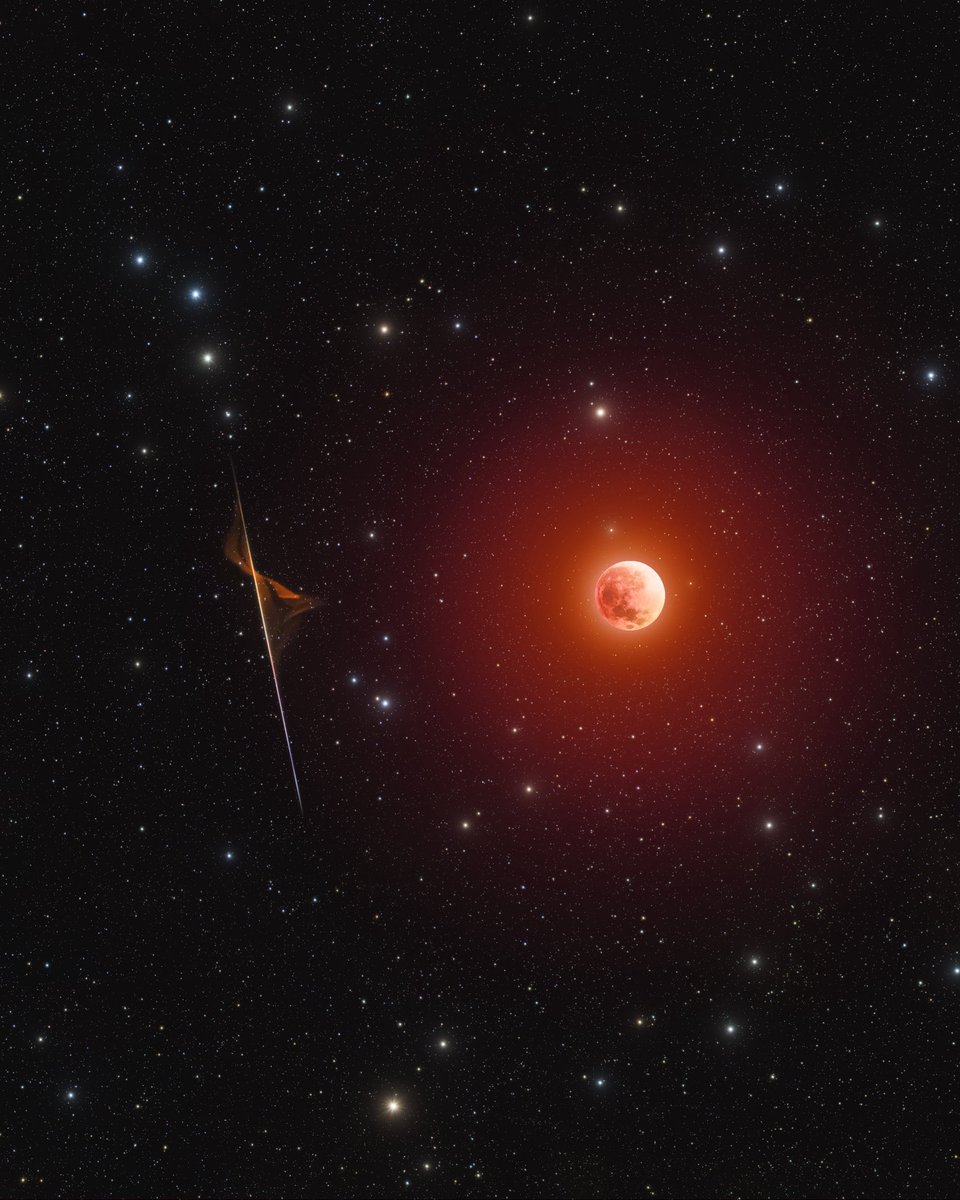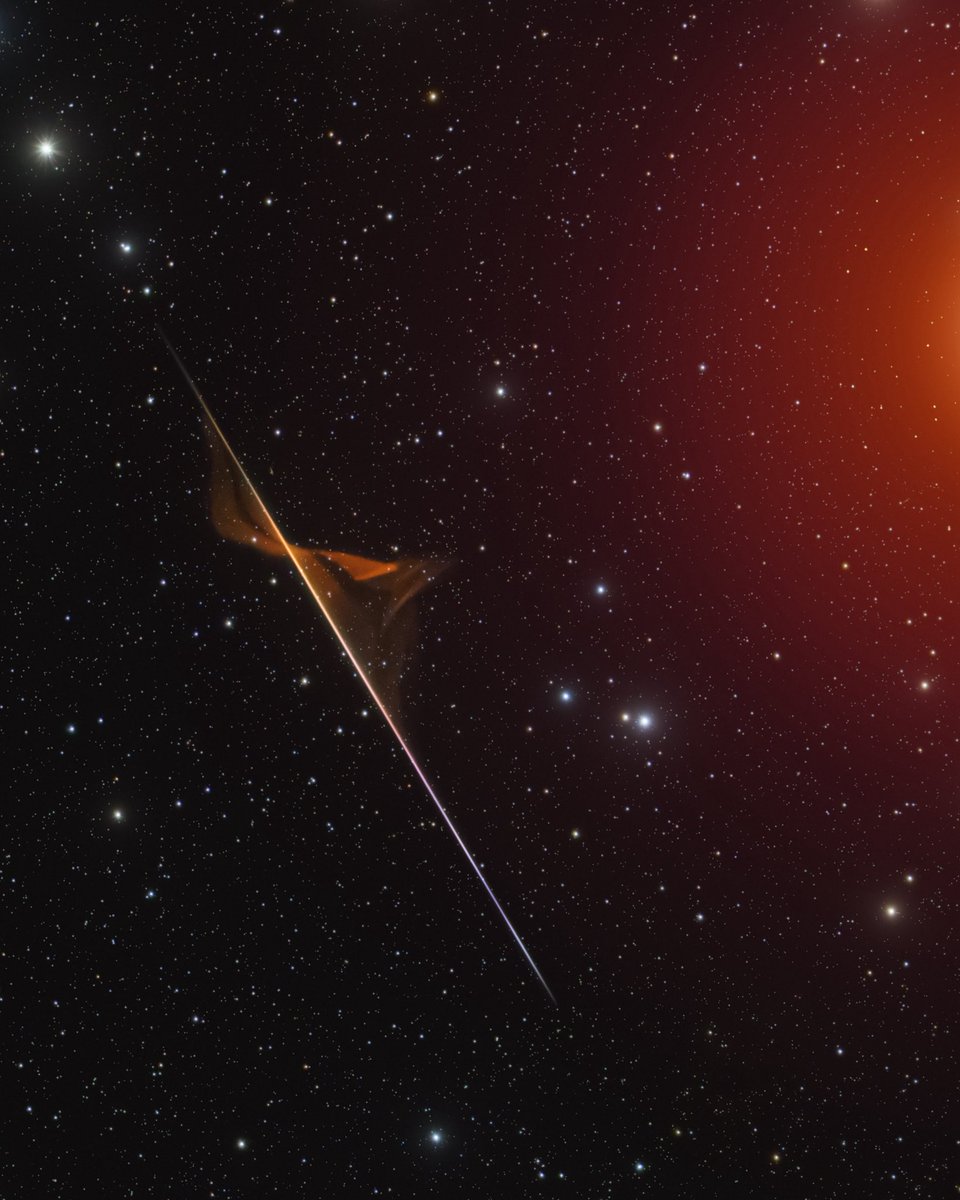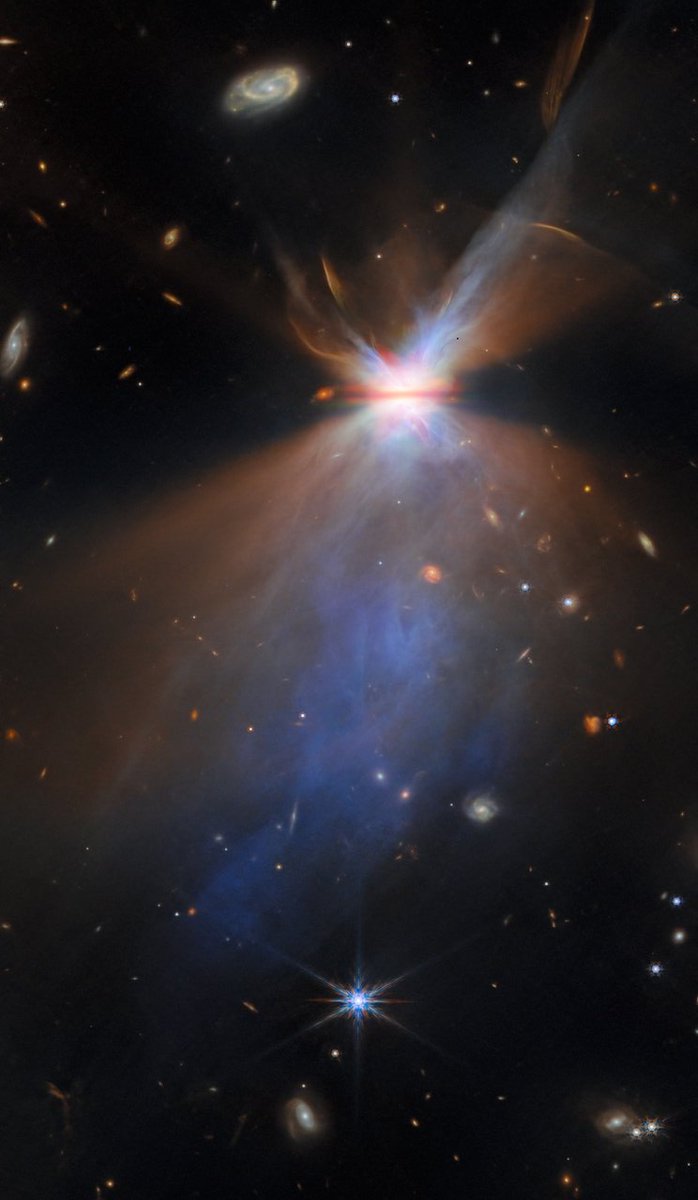
Nereide
@Nereide
Followers
8K
Following
226K
Media
5K
Statuses
63K
Physicist interested in Astrophysics & Particle Physics| Research in Math & Science Edu| Math & Science Writer| Teacher & Teacher Trainer| WomenInSTEM
Italy
Joined June 2007
🇮🇹 Wikipedia cited an article of mine on mathematician Renato Caccioppoli. (Red underline➡️ https://t.co/BIQzNHPc47). I know it isn't the Pulitzer P., but is a gratification for people like me who create & distribute free, educational materials. My post➡️ https://t.co/UzrzLtiiJ7
44
125
297
This magnificent image, captured by JWST's NIRCam instrument, features Pismis 24. It is a young star cluster in the heart of the nearby Lobster Nebula, located some 5,500 ly away in Scorpius. The region, one of the closest sites of massive star formation, allows scientists to
5
37
131
1/2 Spectacular timelapse of comet C/2020 F3 (NEOWISE) with noctilucent clouds, dating back to July 2020. It is a long period comet discovered on March 27, 2020, during the NEOWISE mission of the WISE space telescope. ➡️ https://t.co/Zpe5sehZ3O
#scritturebrevi #VentagliDiParole
18
331
2K
This splendid image by Hubble, released on 9 September 2003, shows Saturn's Southern Hemisphere and the southern face of its rings as seen in ultraviolet light. Ultraviolet light, which has short wavelengths and high energy, can't be detected by our eyes, but Hubble can capture
6
35
110
4 pics from history that capture humanity’s exploration of the #space. 24 Dec 1968: Earthrise, taken from the Apollo 8 25 Feb 1979: Jupiter’s great red spot, obtained by the Voyager 1 6 Jan 2004: The 1st colour img of Mars 10 April 2019: The 1st image of a BH, captured by EHT
10
104
233
An interesting study shares JWST breathtaking images of a protoplanetary disk seen edge-on around the protostar IRAS04302+2247, still nestled in its birth cloud. The young star is located 525 ly away in the Taurus star-forming region. It is nicknamed the Butterfly Star due to
9
55
228
Sept. 1-2, 1859: The Carrington Event, during the solar cycle 10. On 1 Sept. 1859, English astronomers Richard Carrington and Richard Hodgson noticed a sudden brightening on the Sun's surface like they'd never seen before— the 1st record of a solar flare that gave birth to a
6
36
65
August 31, 1989: Stunning OGV (Orange, Green, Violet filter) color image of Neptune and Triton, taken as Voyager 2 departed the Neptune system. Thought of the day, inspired by images like this. "Somewhere, something incredible is waiting to be known." (Sharon Begley) Let's
9
34
86
A groundbreaking study in A&A (Anderson & Hunt, 2025) has used the third Gaia data release to map stellar evolution, analyzing 34,760 variable stars in 1,192 Galactic open clusters (OCs). Here are the key points: - Variable stars as cosmic guides. Variable stars, which change
8
33
111
According to the ESA NEO Coordination Centre (NEOCC), the operational centre of ESA’s Planetary Defence Office (PDO), current near-Earth asteroids (NEAs) are over 39000! This is definitely impressive compared with the approximately 1000 NEAs we knew 25 years ago. Every month
6
21
46
On 27 August 2003, Hubble captured this captivating image when Mars was at its closest approach to Earth in nearly 60,000 years. That was their closest encounter in recorded human history, when the two planets were just 56 million km of each other. Olympus Mons, the solar
9
35
108
Researchers from the Large Hadron Collider (LHCb) Collaboration have reported a very rare event: the first observation of the Σ⁺ → p 𝜇⁺ 𝜇⁻ decay, that is, the disintegration of the sigma-plus baryon (Σ⁺) into a proton (p), an antimuon (𝜇⁺), and a muon (𝜇⁻ ). It has
12
28
102
According to a recent study (Jul 2025), a research team discovered 11 high-velocity neutral hydrogen clouds (HVCs) within the Fermi Bubbles. The Fermi Bubbles are giant plasma lobes at temperatures over a million degrees Kelvin, spanning above and below the galactic center (GC)
9
46
136
A landmark study, published on 8 Aug. 2025, presents a snapshot of the Universe’s first billion years, as revealed by the JWST's data. It comes from collaborative work of global cosmology experts during the ISSI Breakthrough Workshop in Bern (March 2024). This is a summary
10
34
80
I fully agree! Feynman didn't deny the existence of talent, but shifted attention to the transformative power of commitment and curiosity. He argued that anyone, with dedication and a courious approach, could understand complex concepts like quantum mechanics, even if not
Absolutely. Feynman was not denying the existence of talent. He was saying everyone can profit from real effort. It is like learning a language. Everybody can learn to communicate in eg German, but not everyone will be Goethe.
8
31
104
Using JWST/NIRSpec PRISM spectroscopy, an international research team has recently made an extraordinary discovery: the earliest CONFIRMED black hole, located at the heart of the CAPERS-LRD-z9 galaxy, 13.3 billion ly away. This means we see it as it was just 500 Myr after the
17
41
153
A possible planet around the closest sun-like star? Using the JWST, two complementary studies reveal evidence of a giant gaseous planet in the habitable zone of the star Alpha Centauri A, located just 4.37 ly away. Submitted on arXiv on 5 Aug. 2025, the studies are led by
9
25
80
The JWST has opened a new window on the universe with the MIDIS (MIRI Deep Imaging Survey) project, focusing its instruments on a tiny patch of sky in Fornax, called the Hubble Ultra Deep Field (HUDF). This area, already made famous by images from the Hubble Space Telescope (and
5
59
196
This stunning image features JWST's NIRCam (near-infrared) newest observation of the planetary nebula NGC 6072. Planetary nebulae, which generally present themselves with circular, elliptical or bipolar shapes, are spectacular images of dying stars, with a mass 1 to 8 times that
8
48
176
























